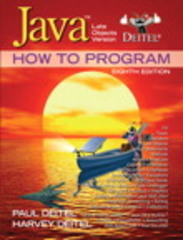Question
In C# code Instructions: 10.11 (Extension Methods for Class Time2) Use an extension method to provide for class Time2 (Fig. 10.5) a Tick method
In C# code
Instructions:
10.11 (Extension Methods for Class Time2) Use an extension method to provide for class Time2 (Fig. 10.5) a Tick method that increments the time by one second. The Time2 object should always remain in a consistent state, so be sure to account for and test the following cases:
Fig 10.5 below
using System;
/*
* 10.11 (Extension Methods for Class Time2) Use an extension
* method to provide for class Time2 (Fig. 10.5)
* a Tick method that increments the time by one second.
* The Time2 object should always remain in a consistent state,
* so be sure to account for and test the following cases:
*/
namespace Exercise_10_11
{
public class Time2
{
private int hour; // 0 - 23
private int minute; // 0 - 59
private int second; // 0 - 59
// constructor can be called with zero, one, two or three arguments
public Time2(int hour = 0, int minute = 0, int second = 0)
{
SetTime(hour, minute, second); // invoke SetTime to validate time
}
// Time2 constructor: another Time2 object supplied as an argument
public Time2(Time2 time)
: this(time.Hour, time.Minute, time.Second) { }
// set a new time value using universal time; invalid values
// cause the properties' set accessors to throw exceptions
public void SetTime(int hour, int minute, int second)
{
Hour = hour; // set the Hour property
Minute = minute; // set the Minute property
Second = second; // set the Second property
}
// property that gets and sets the hour
public int Hour
{
get
{
return hour;
}
set
{
if (value < 0 || value > 23)
{
throw new ArgumentOutOfRangeException(nameof(value),
value, $"{nameof(Hour)} must be 0-23");
}
hour = value;
}
}
// property that gets and sets the minute
public int Minute
{
get
{
return minute;
}
set
{
if (value < 0 || value > 59)
{
throw new ArgumentOutOfRangeException(nameof(value),
value, $"{nameof(Minute)} must be 0-59");
}
minute = value;
}
}
// property that gets and sets the second
public int Second
{
get
{
return second;
}
set
{
if (value < 0 || value > 59)
{
throw new ArgumentOutOfRangeException(nameof(value),
value, $"{nameof(Second)} must be 0-59");
}
second = value;
}
}
// convert to string in universal-time format (HH:MM:SS)
public string ToUniversalString() =>
$"{Hour:D2}:{Minute:D2}:{Second:D2}";
// convert to string in standard-time format (H:MM:SS AM or PM)
public override string ToString() =>
$"{((Hour == 0 || Hour == 12) ? 12 : Hour % 12)}:" +
$"{Minute:D2}:{Second:D2} {(Hour < 12 ? "AM" : "PM")}";
}
}
//Use code below to test:
using System;
namespace Exercise_10_11
{
public class Time2Test
{
static void Main()
{
var t1 = new Time2(); // 00:00:00
var t2 = new Time2(2); // 02:00:00
var t3 = new Time2(21, 34); // 21:34:00
var t4 = new Time2(12, 25, 42); // 12:25:42
var t5 = new Time2(t4); // 12:25:42
Console.WriteLine("Constructed with:\n");
Console.WriteLine("t1: all arguments defaulted");
Console.WriteLine($" {t1.ToUniversalString()}"); // 00:00:00
Console.WriteLine($" {t1.ToString()}\n"); // 12:00:00 AM
Console.WriteLine(
"t2: hour specified; minute and second defaulted");
Console.WriteLine($" {t2.ToUniversalString()}"); // 02:00:00
Console.WriteLine($" {t2.ToString()}\n"); // 2:00:00 AM
Console.WriteLine(
"t3: hour and minute specified; second defaulted");
Console.WriteLine($" {t3.ToUniversalString()}"); // 21:34:00
Console.WriteLine($" {t3.ToString()}\n"); // 9:34:00 PM
Console.WriteLine("t4: hour, minute and second specified");
Console.WriteLine($" {t4.ToUniversalString()}"); // 12:25:42
Console.WriteLine($" {t4.ToString()}\n"); // 12:25:42 PM
Console.WriteLine("t5: Time2 object t4 specified");
Console.WriteLine($" {t5.ToUniversalString()}"); // 12:25:42
Console.WriteLine($" {t5.ToString()}"); // 12:25:42 PM
// attempt to initialize t6 with invalid values
try
{
var t6 = new Time2(27, 74, 99); // invalid values
}
catch (ArgumentOutOfRangeException ex)
{
Console.WriteLine("\nException while initializing t6:");
Console.WriteLine(ex.Message);
}
}
}
}
Step by Step Solution
There are 3 Steps involved in it
Step: 1
To create an extension method for the Time2 class in C that increments the time by ...
Get Instant Access to Expert-Tailored Solutions
See step-by-step solutions with expert insights and AI powered tools for academic success
Step: 2

Step: 3

Ace Your Homework with AI
Get the answers you need in no time with our AI-driven, step-by-step assistance
Get Started


